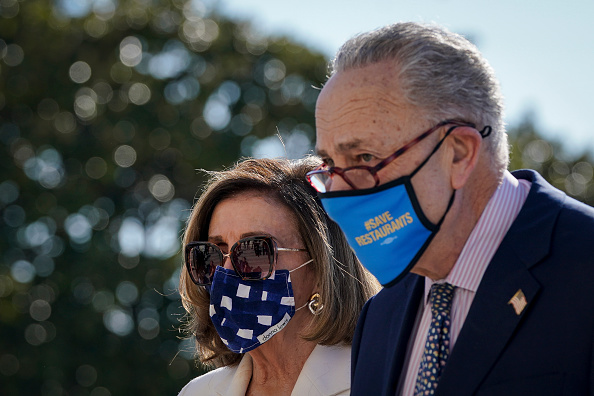(The Center Square) – Illinois is leading a charge with seven other states that carry unemployment trust fund debt looking for a waiver of interest.
A total of nine states and the Virgin Islands have a combined $39.5 billion in unemployment trust fund debt, according to the U.S. Treasury.
California leads the outstanding balance with $19.4 billion. New York has more than $9.2 billion outstanding. Illinois has $4.5 billion unpaid. Massachusetts has nearly $2.3 billion unpaid. Minnesota and Colorado each have more than $1 billion in unemployment debt. Pennsylvania has nearly $747 million in debt and Connecticut and New Jersey each carry more than $500 million each. The Virgin Islands have nearly $95 million in unemployment debt.
“Taxpayers should not be on the hook for interest just because the pandemic is lasting longer than projected,” Mendoza said in a statement.
“Colorado has over $1 billion in outstanding advancements,” Colorado Comptroller Robert Jaros sadi in a joint statement with Mendoza. “Accrued interest is almost $4 million as of today and will grow to over $20 million if not paid within a year. … Colorado needs more time to address the repayment of the outstanding advancements.”
Truth In Accounting Research Director Bill Bergman said the request means that taxpayers in states that are responsibly managed will bear the burden.
“There’s no coincidence that the eight states that have requested the extension of the waiver on the interest that’s owed on this program are generally eight states in very bad financial condition,” he said.
The states that signed on to Mendoza’s efforts are New York, Colorado, Pennsylvania, Connecticut, New Jersey, Massachusetts and Minnesota.
TIA’s Financial State of the States, a barometer of how well state’s finances are performing for taxpayers, shows F grades for Illinois, New York, New Jersey, Connecticut, Massachusetts, a D grade for Pennsylvania, a C grade for Colorado and a B grade to Minnesota.
For Illinois, Mendoza’s letter seeking the interest waiver comes a little more than seven months after her office heralded paying down the state’s backlogged bills.
In April, Mendoza said her office has managed to bring the backlog of unpaid bills from a peak of $16.7 billion in 2017 to $3.5 billion. As of Thursday, the backlog was $5.1 billion. That doesn’t include the $4.5 billion in unpaid unemployment debt the state owes the federal government.
Bergman said waiving the interest won’t teach a good lesson.
“People take risks and maybe don’t manage themselves as otherwise they would if the losses can be socialized through the federal government,” Bergman said.
Originally published by The Center Square. Republished with permission.











